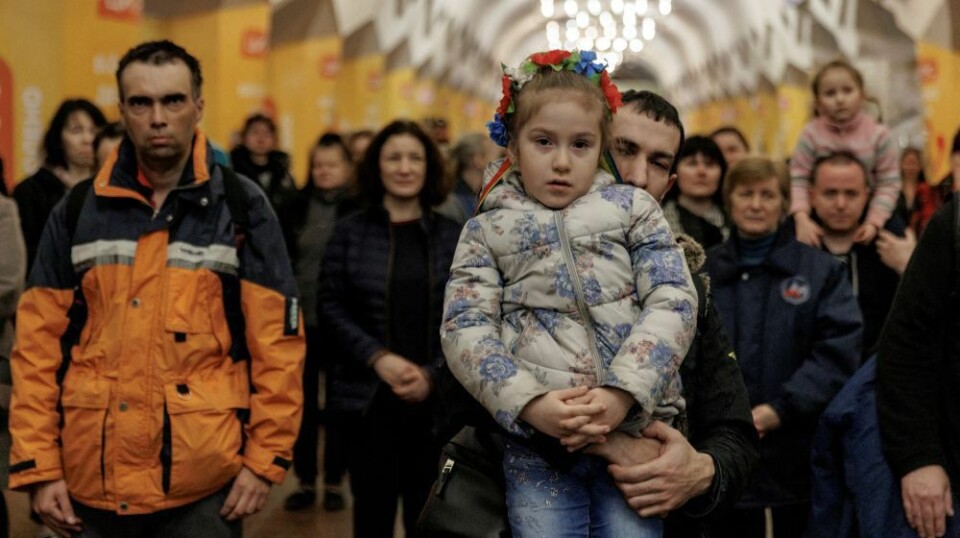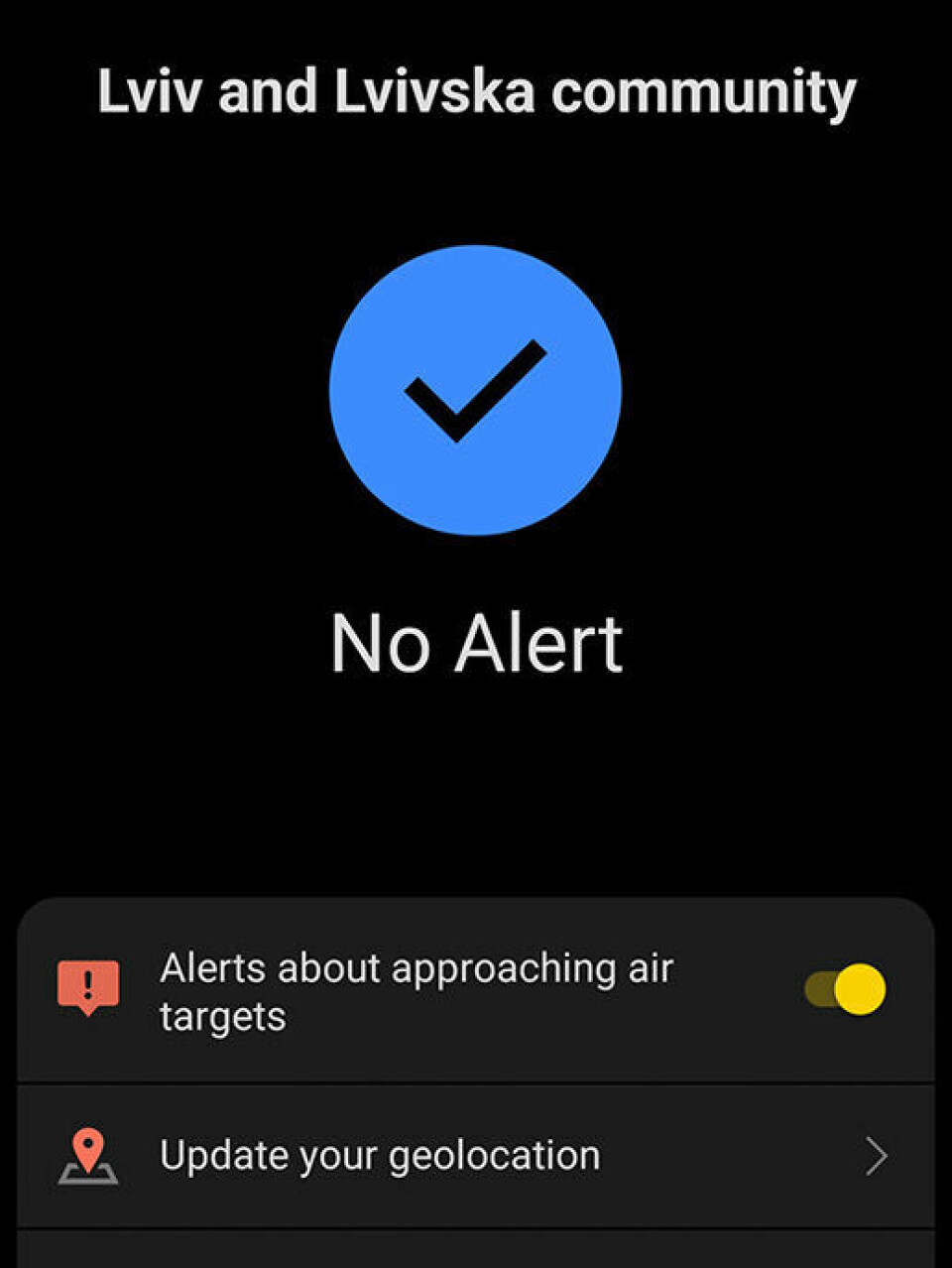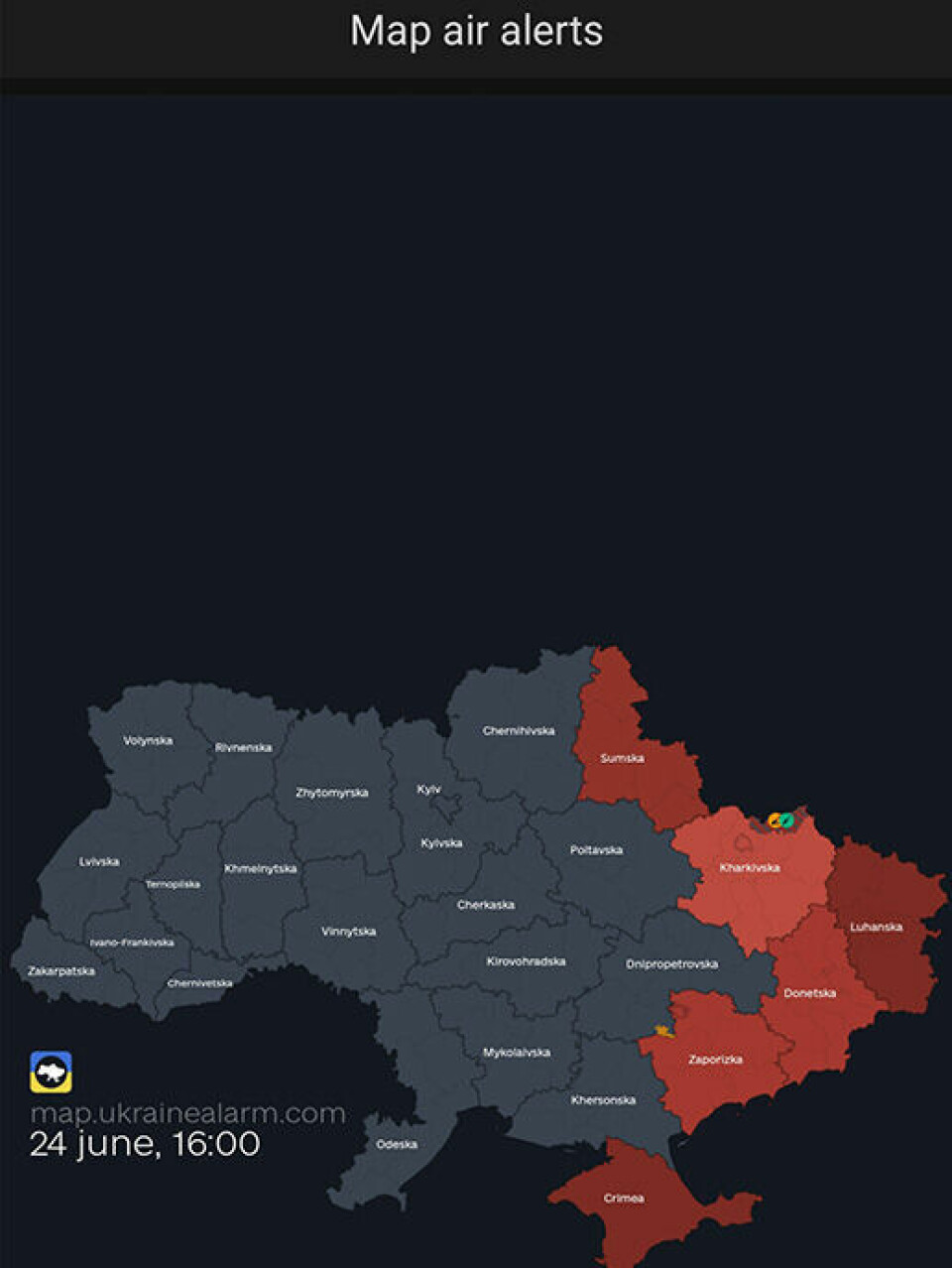THIS CONTENT IS BROUGHT TO YOU BY University of Oslo - read more
This is how Ukrainians live with the sound of war
Air raid sirens, drones, and bombs. The noise of war brings Ukrainians together, but it also creates different experiences depending on where you are.

If you ask a Ukrainian about how they experience the war, it probably won't take long before they start talking about the sounds that have become part of everyday life.
Because the soundscape plays a larger role than many might realise.
Using sound as a lens
“It was a surprise to me how significant sound is in Ukrainians' experience of war. People talk about it all the time,” says Anna Chebotarova, a researcher at the University of Oslo.

She has researched the impact of war and migration on a sense of unity and belonging in Ukraine. Chebotarova is Ukrainian herself and has chosen to use sound as a lens:
“My goal has been to uncover the everyday experience of war and make it understandable to people outside,” she says.
Unlike much other research that focuses on communities in the aftermath of a conflict, she has chosen to study the society while war is still ongoing.
“I don't think we can afford to wait until the war is over. It has already lasted more than 10 years, and we don't know when or how it will end,” she says.
The air raid siren affects everyone
On February 24, 2022, Russian forces launched a full-scale invasion of Ukraine. People she has interviewed remember this day primarily as an auditory experience, one that quickly taught them to recognise the sounds of life-threatening danger.
“Sound is a very strong bodily experience that is hard to escape. Every time I return to Norway from Ukraine, it takes time to adjust to a peaceful soundscape,” says Chebotarova.
Most of us probably associate war with the sounds of planes, bombs, and explosions. But the Ukrainian researcher has focused specifically on one sound that impacts the entire country: the sound of air raid sirens.
The air raid siren affects all Ukrainians in every corner of the country, even those living far from the front lines.
“It has become part of everyday life for everyone in Ukraine. Also for Ukrainians living abroad. The alarm divides daily life into two modes: Either you or your loved ones are in danger, or in relative safety,” she says.
One of many Ukrainians she has interviewed describes the air raid siren this way:

'Have you noticed that the siren and bombings always happen early in the morning? That's when sleep is deepest and most valuable. This nasty alarm, the bloody explosions – that's the sound of our daily Russian roulette.’
Mobile apps create new communities
When the war started in Ukraine, the emergency alert system was not up to date. In many places, people could not hear the air raid sirens.
This accelerated the development of new mobile apps that could provide real-time alerts about attacks. These apps have become an important part of the soundscape.
“Now it's not only about physical spaces and physical sounds, but also the sound of sirens on your smartphone. A sound that even people abroad can experience through the mobile apps,” says Chebotarova.
She often receives alerts from the air raid app on her phone. She has turned off the sound, but it vibrates.
“You can choose your city or region and keep track of when an air raid siren goes off,” she says.
Receive alerts about where and when attacks happen
Most Ukrainians have also downloaded the messaging app Telegram. The app has many different channels, some of which focus solely on air raid alerts.
“For many, this is the main source of information about the war. Look at this channel here, for example,” she says, taking out her phone and showing how the messaging service works.
On Telegram, you can get alerts if a group of drones are flying near where you live and which cities they might fly over. Residents in these areas are advised to be extra cautious.
“How often do you check the air raid app and Telegram?”
“I get alerts when there's an air raid, but I also check the news often to see what's happening. And if there's a threat to my city, I contact my family and friends immediately,” she says.
For Ukrainians abroad, this is a way to stay connected to their homeland.
Chebotarova's research shows that people's experience of the war has both strengthened Ukrainian identity and created a deep connection to the local community – also among those who have fled abroad.
A Ukrainian in Romania she interviewed says he checks his phone all the time:
'My boss came in and said: Why are you always on your phone? You should be working! Because the Odesa region is being bombed, heavily bombed. My son is there now; it's a war zone. The only thing that matters is that he answers. Do you understand me?'
Providing a sense of control
Chebotarova believes the mobile apps have become so popular during the war because they give people back a sense of control over their own lives.
“The first thing the war robs you of is the feeling of control. Many people were forced to flee their homes overnight, leaving behind everything they owned. A bomb can hit your house at any time, and you can lose everything. For many, this has been the biggest shock – that it's impossible to take tomorrow for granted,” she says.
But the mobile apps give people new hope.

“They know what's happening, and they can also choose not to react to the sirens. The most important thing is that it's their own choice. In this way, many try to take back control over their lives,” she explains.
In some areas near the front line, the air raid siren can last for hours. When the invasion began, people often went to shelters.
“But as time has gone on, many have developed so-called air raid fatigue. That's why many people actually ignore it,” she says.
The air raid siren unites and divides
When Chebotarova's phone vibrates because an air raid siren has gone off, it synchronises with the air raid alarms in Ukraine. This forms a digital community.
The smartphone has brought the war much closer to the people, and the apps unite them. They can get information all the time, even if they are far from the front lines.
But at the same time, the sound of the air raid siren also creates very different realities, depending on where people live.
“It's interesting to see how different people's experiences of the war are. The sound of war creates different 'acoustic communities’,” she says.
For soldiers on the front line, for example, the soundscape of war is completely different than in other areas. A combat medic describes this in an interview with the online newspaper Ukrainska Pravda:
'Anything that sounds like a drone immediately gives you an adrenaline rush. You have to hide right away. On the other hand, I like the sound of an air raid siren. It's so soothing and nostalgic. It reminds you that you're not on the front line; you're in a relatively peaceful city, and it's nice to realise that.'
Hopes the support for Ukraine continues
This is how the war creates a gap in experiences.
To bridge this gap, Chebotarova has a good piece of advice for Ukrainian authorities:
“There's much untapped potential in apps, websites, and social media. National and local authorities should provide displaced Ukrainians with more spaces to maintain their connection to their homeland and local communities. This will be beneficial for Ukraine in the future, regardless of whether people decide to return or not.”
She hopes that her research can contribute to the continued support for Ukraine.
“Supporting Ukraine also means understanding how people live during the war, day by day, sound by sound. People must realise that European security is at risk now, and these are very uncertain times. Right now, this cruel burden has fallen on the Ukrainians, but who knows what will happen tomorrow,” she says.

This content is paid for and presented by the University of Oslo
This content is created by the University of Oslo's communication staff, who use this platform to communicate science and share results from research with the public. The University of Oslo is one of more than 80 owners of ScienceNorway.no. Read more here.
More content from the University of Oslo:
-
"Everyone knows it, everyone’s seen it. Most people have a perception of nightlife chaos”
-
Music in film and TV: “It's a form of manipulation”
-
Can you take antidepressants while pregnant?
-
Where humans outshine AI: “There's something hopeful in these findings”
-
Why we need a national space weather forecast
-
Mainland Europe’s largest glacier may be halved by 2100




































